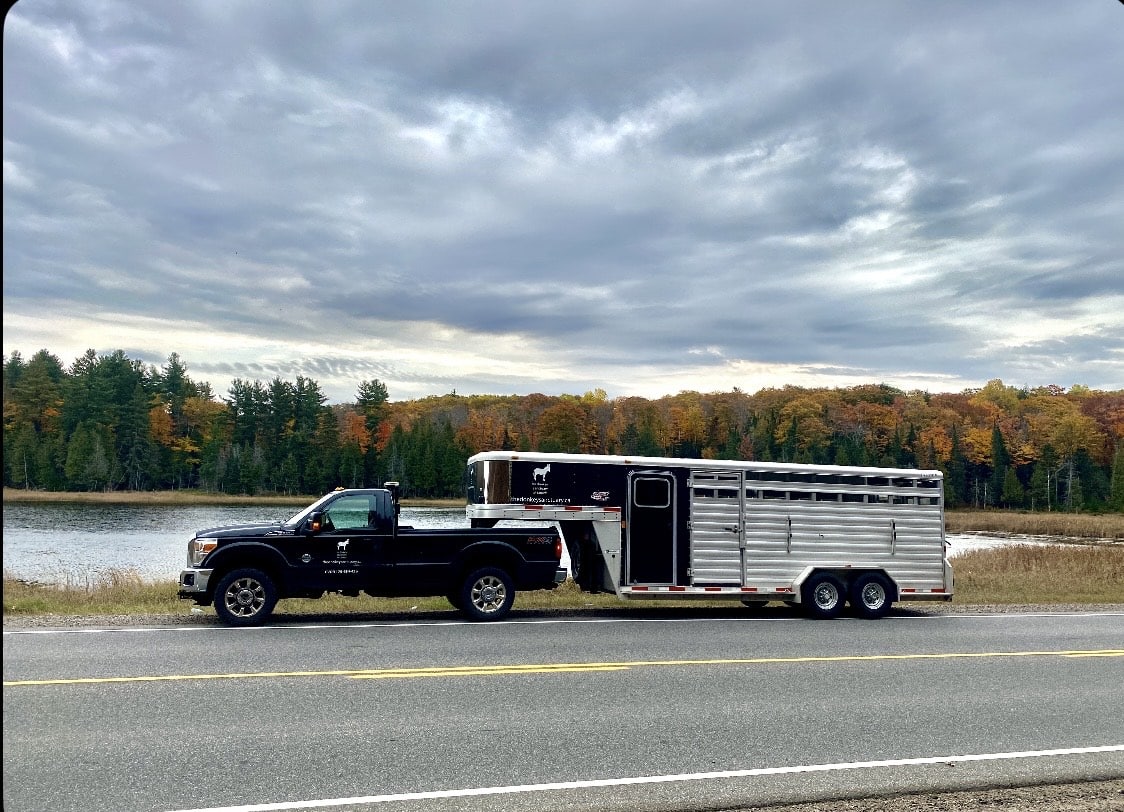
The Virtual Learning Centre launches with its first flagship resource: Donkey Care Essentials, an introductory video that walks viewers through the foundational elements of good donkey care. From understanding their unique dietary needs to creating a safe, enriching environment, this video offers practical advice for anyone looking to improve the lives of the donkeys or mules in their care.
Join us for our special Spring Celebration Open Day on Palm Sunday, March 29, 2026, from 11:00am–3:00 pm. Spend a peaceful afternoon meeting our donkeys, enjoying the beauty of the farm, and learning more about these animals.
Over the years, our truck has travelled thousands upon thousands of kilometres in the name of donkey welfare.
It has brought approximately 90% of the donkeys and mules who currently call the Sanctuary home safely through our gates.
But after years of service, those long kilometres are beginning to take their toll and it’s time to replace the truck.
Every mile it has driven tells a story of rescue, care, and second chances.
With your support, we can keep driving for donkeys for many more miles to come.
We believe donkeys deserve protection, humane treatment, and recognition for their vital role in both human and animal communities. We support education, policy reform, and international collaboration aimed at ending this trade and promoting ethical, sustainable alternatives. Read our full statement here.
Read about the animals at the DSC, and get the latest in education, advice & information.

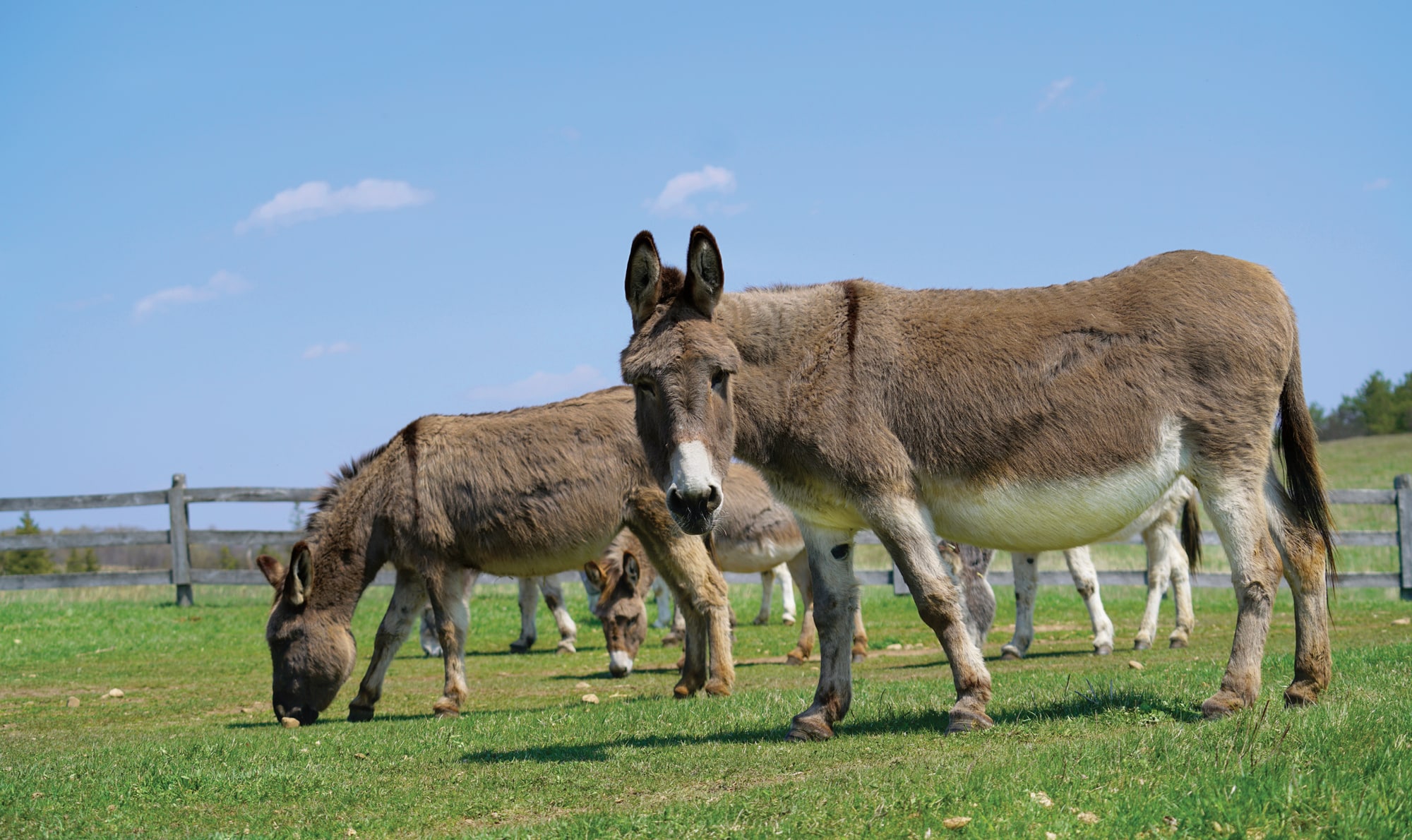
Spring is a time of renewal, growth, and fresh beginnings!

Donkeys are always communicating. We just need to know how to listen. Join us for Speaking with Donkeys, a webinar
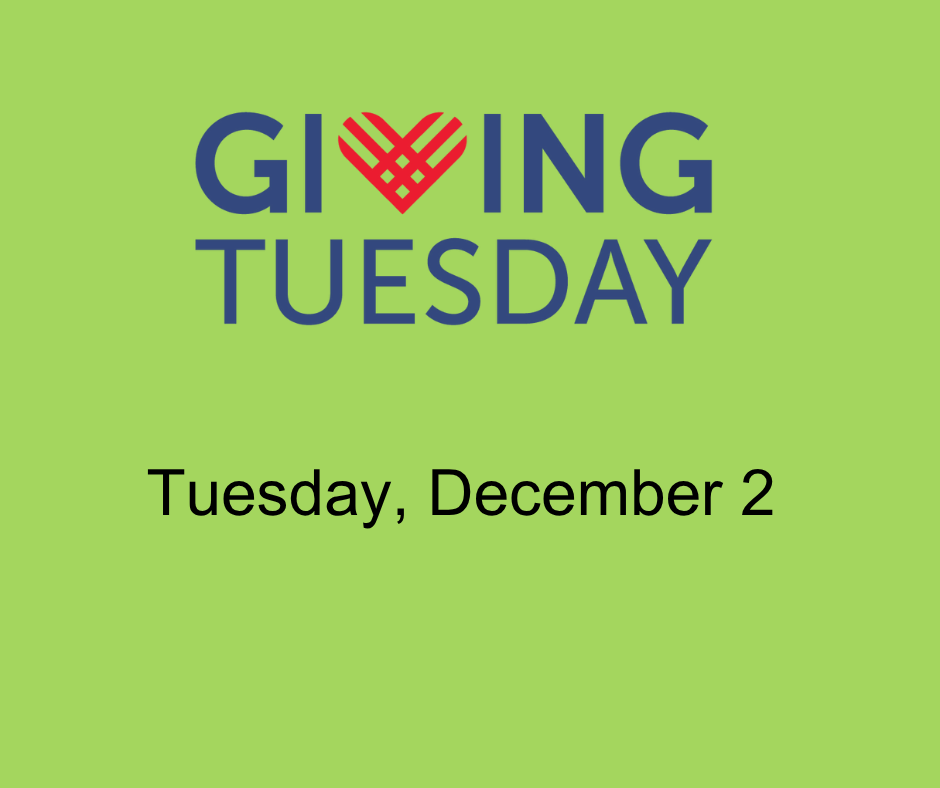
A Day in the Life at a Sanctuary This Giving Tuesday, December 2, your support helps make every moment count
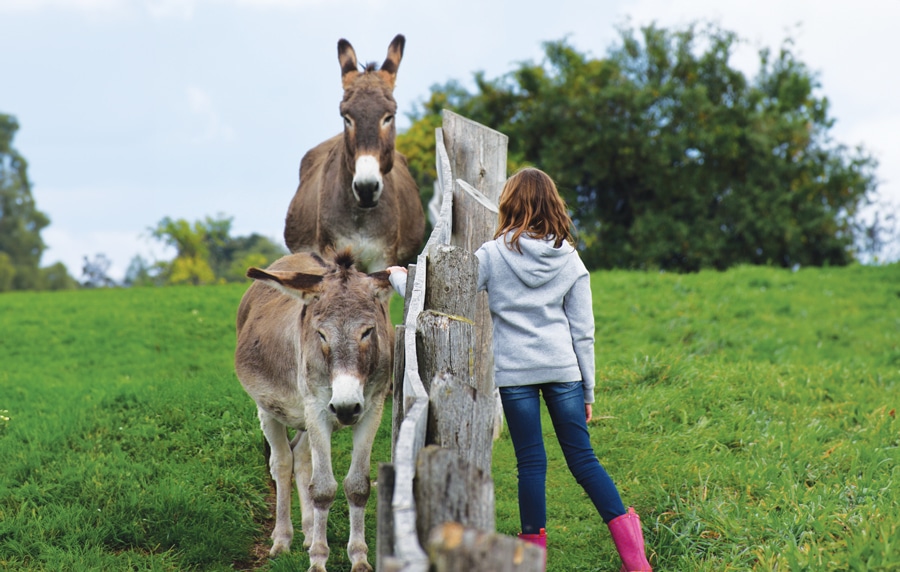
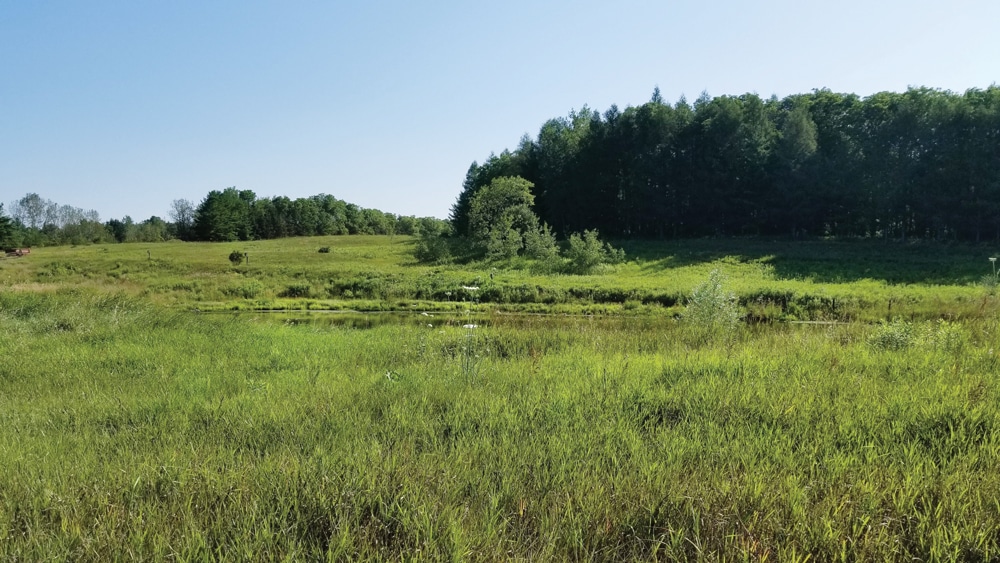
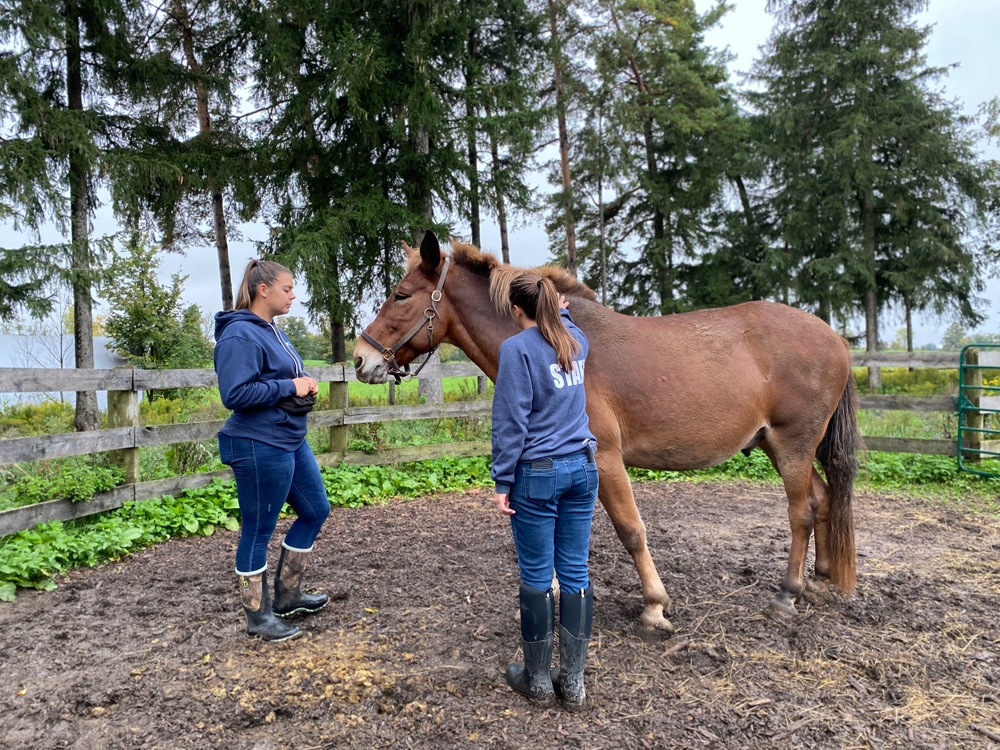
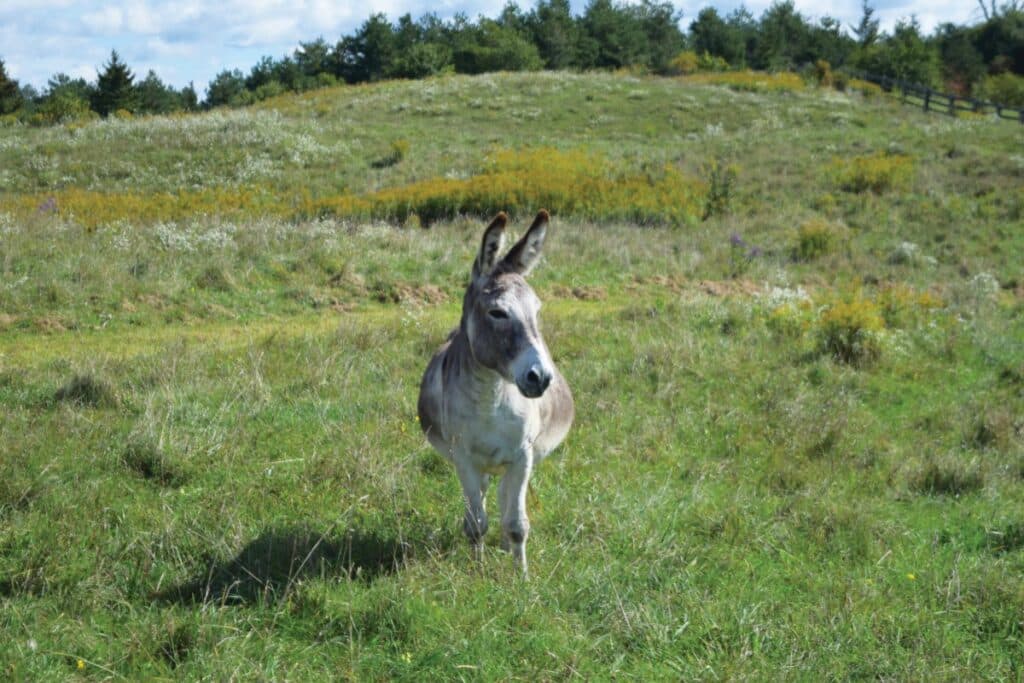
Dylan and his sister Sydney were beloved family pets before coming to the DSC. They had received regular veterinary and farrier care and were well handled. They came to the DSC when their owner decided wisely to plan for the animals’ future.
Apollo lived on a farm with cattle. When he did not show interest in the cattle and did not protect them his caretaker physically abused him and refused to pay for his hooves to be trimmed. The SPCA was called in to investigate. It was not long before the donkey was relinquished and the DSC was asked to take him into care.
Before arriving at the Donkey Sanctuary of Canada (DSC) Tequila lived with another donkey, a jack named Cruze, on a farm in Western Ontario. There they were used as a breeding pair and had several offspring. When they were no longer able to have offspring they were moved to a different farm, where they received very little care. The DSC was contacted to see if we could help.
Oliver is blind in both eyes and only has one fully developed ear. Before coming to the DSC, Oliver lived on a beef farm. When a visitor to the farm noticed the young donkey pacing in circles in a small stall, she talked to the owner about purchasing the donkey.
Before being admitted to The Donkey Sanctuary of Canada (DSC) in late spring 2019, Franny lived on a loving farm with horses and other donkeys in Southwestern Ontario. She was well cared for, but her owners were getting older and were beginning to downsize.
Hummer has lived in many places, under the care, time and again, of people determined to ride him. Hummer was not interested in being ridden and could become very uncooperative if asked to do so. When he first arrived at the DSC Farm, he was cautious and anxious around people, but has since developed a love of visiting with people over the fence and receiving attention.
Dylan and his sister Sydney were beloved family pets before coming to the DSC. They had received regular veterinary and farrier care and were well handled. They came to the DSC when their owner decided wisely to plan for the animals’ future.
Apollo lived on a farm with cattle. When he did not show interest in the cattle and did not protect them his caretaker physically abused him and refused to pay for his hooves to be trimmed. The SPCA was called in to investigate. It was not long before the donkey was relinquished and the DSC was asked to take him into care.
Before arriving at the Donkey Sanctuary of Canada (DSC) Tequila lived with another donkey, a jack named Cruze, on a farm in Western Ontario. There they were used as a breeding pair and had several offspring. When they were no longer able to have offspring they were moved to a different farm, where they received very little care. The DSC was contacted to see if we could help.
Oliver is blind in both eyes and only has one fully developed ear. Before coming to the DSC, Oliver lived on a beef farm. When a visitor to the farm noticed the young donkey pacing in circles in a small stall, she talked to the owner about purchasing the donkey.
Before being admitted to The Donkey Sanctuary of Canada (DSC) in late spring 2019, Franny lived on a loving farm with horses and other donkeys in Southwestern Ontario. She was well cared for, but her owners were getting older and were beginning to downsize.
Hummer has lived in many places, under the care, time and again, of people determined to ride him. Hummer was not interested in being ridden and could become very uncooperative if asked to do so. When he first arrived at the DSC Farm, he was cautious and anxious around people, but has since developed a love of visiting with people over the fence and receiving attention.